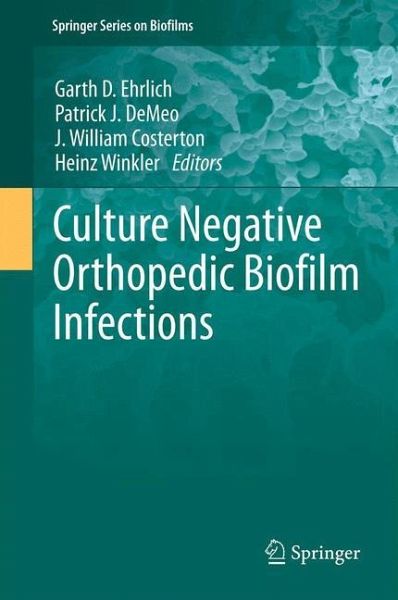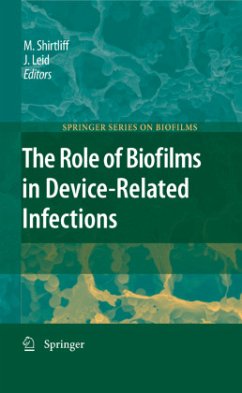
Culture Negative Orthopedic Biofilm Infections

PAYBACK Punkte
57 °P sammeln!
During the recent transition between acute diseases caused by swarms of single planktonic bacteria, and chronic infections caused by bacteria growing in slime-enclosed biofilms, a general clinical consensus has emerged that pathologies with bacterial etiologies are frequently culture negative. Because biofilm infections now affect 17 million Americans per year (killing approximately 450,000), the suggestion that these common and lethal infections regularly go unnoticed by the only FDA-approved method for their detection and characterization is a matter of urgent concern. Biologically, we would...
During the recent transition between acute diseases caused by swarms of single planktonic bacteria, and chronic infections caused by bacteria growing in slime-enclosed biofilms, a general clinical consensus has emerged that pathologies with bacterial etiologies are frequently culture negative. Because biofilm infections now affect 17 million Americans per year (killing approximately 450,000), the suggestion that these common and lethal infections regularly go unnoticed by the only FDA-approved method for their detection and characterization is a matter of urgent concern. Biologically, we would expect that planktonic bacterial cells would colonize any new surface, including the surface of an agar plate, while the specialized sessile cells of a biofilm community would have no such proclivity. In the study of biofilm diseases ranging from otitis media to prostatitis, it was found that direct microscopy and DNA- and RNA-based molecular methods regularly document the presence of living bacteria in tissues and samples that are culture negative. The editors selected orthopedic biofilm infections as the subject of this book because these infections occur against a background of microbiological sterility in which modern molecular methods would be expected to find bacterial DNA, RNA-based microscopic methods would be expected to locate bacterial cells, and cultures would be negative. Moreover, in Orthopedics we find an already biofilm-adapted surgical group in which current strategies are based on the meticulous removal of compromised tissues, antibiotic options as based on high biofilm-killing local doses, and there are practical bedside strategies for dealing with biofilm infections. So here is where the new paradigm of biofilm infection meets the equally new paradigm of the culture negativity of biofilms, and this volume presents a conceptual synthesis that may soon combine the most effective molecular methods for the detection and identification of bacteriawitha surgical discipline that is ready to help patients.














